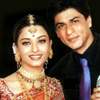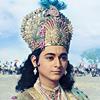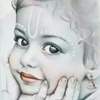Hi everyone,
Hope all of you are fine😊
I am following this series and had a doubt regarding the turn of events, basically about the authenticity of the Uttar kand of Valmiki Ramayan. There is a huge section who believes in it and then there are people who feels that it isn't written by Valmiki and they have some solid reasons to support their point. Additionally , all the other prominent writings like Ramcharitmanas ,Ramavatram ends at Ram coronation ceremony too.
I will be glad if someone can help me in this.
Edit:- the reasons favouring the interpolation idea.
- The first one being the "Phal Shruti"(benefits of reading or listening this holy write up) thing, In the valmiki ramayan we have, the phal shruti is after the Yuddh kand i.e. in the middle of the book whereas the phal shruti is always mentioned in the last after the whole story or any write up is done.
The contradictions
- In the last of Yuddh kand it is mentioned that Rama ruled for 10,000 years and the people were very happy and there was no premature death, everyone died after being old and no one died before their children but then in the Uttar kand it is mentioned that a Brahmin came to Rama with a plea as his son had a premature death.
- The reason for the death was a dalit who was performing puja to enter heaven( I guess directly without dying not completely sure though), Shambuk, Rama killed him, and the brahmin son revived. The devtas were quite happy that Rama did this stunt.
- Again, according to the character of Rama he never differentiated between people on the basis of caste,and more over killing someone who is performing penance is highly condemned, Rama being maryada purshottam is highly unlikely to do this.
The other points are from Ravana side( which I am copy pasting )
)
- When Ravana orders to kill Hanuman in Lanka, Vibhishana says that killing of a messenger had never been heard before, yet in Uttara Kanda Ravana kills a messenger of Kubera and that was before hanuman arrived Lanka.
- In Aranya Kanda, Ravana was introduced as an undefeated warrior that couldn't be defeated by God's, divine beings, sages or any other being. But in Uttara Kanda, we see Ravana being defeated by Vali, Kartavirya Arjuna, Shambhasura. There is no mention of these warriors defeating Ravana in the first six books of Ramayana.
- It is clearly mentioned in sundara kanda that Ravana himself defeated Indra and 33 other Gods. His Victories over Yama, Varuna, Kubera was mentioned explicitly. But in Uttara Kanda, Ravana was shown being dominated by Indra before Meghnada came to the rescue. He couldn't defeat Yama properly as well.
- The six books of Ramayana don't quote Ravana having Pashupata yet Ravana uses this astra in Uttara Kanda. Yuddha Kanda mentions Ravana having defeated the nivatakavachas before learning illusions from them yet in Uttara Kanda it shows Ravana and nivatakavachas having a treaty. Even mandodari mentioned in Yuddha Kanda how Ravana dominated nivatkavchas even after Brahma's boon upon them.
- In kiskindha Kanda, Indra attacked Hanuman with his Vajra yet the child vanara wasn't injured. But in Uttara Kanda, It shows Indra killing baby Hanuman with his Vajra before Brahma revived him. In kiskindha Kanda, only Brahma and Indra grants Hanuman a boon while in Uttara Kanda all the God's including Shiva grants Hanuman boons.
- Ministers of Ravana were glorifying Ravana in Yuddha Kanda as to how Ravana defeated khastriyas on earth whose valour were equal to Indra. Yet in Uttara Kanda, we see Kartavirya Arjuna defeating him.
- One more point, just remembered, In yuddh kand it was written that the Pushpak Viman is given back to Kuber after Ram came back to Ayodhya but in Uttar Kand it was again with our Rama😆
- Srimad Ramayana was written much earlier to Mahabharata. In the 272-289 Sections of Vana Parva of Mahabharata, the story of Sri Rama was narrated to Yuddhistara by Sage Markandeya. Though the story contains minor variations compared to the story told in the Srimad Ramayana, those episodes describe the story of Sri Rama in full.
- However, the sage Markandeya ends the story of Sri Rama in 289 Section of Vana Parva of Mahabharata with the coronation of Sri Rama as the king of Kosala Kingdom. No mention was made therein the story of UTTARA KANDA.















comment:
p_commentcount